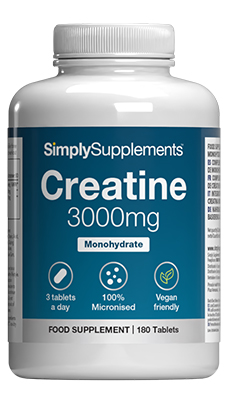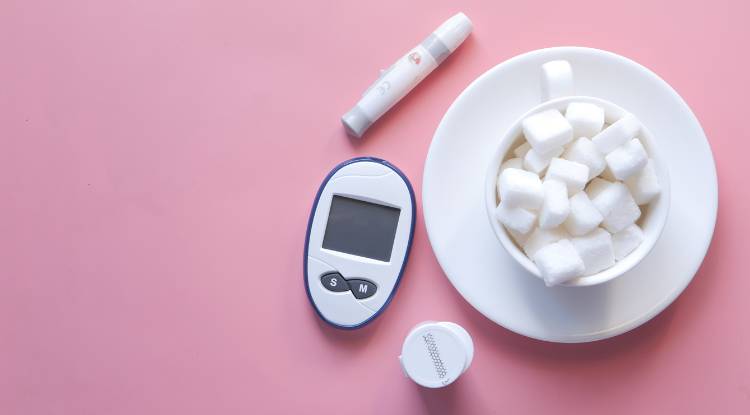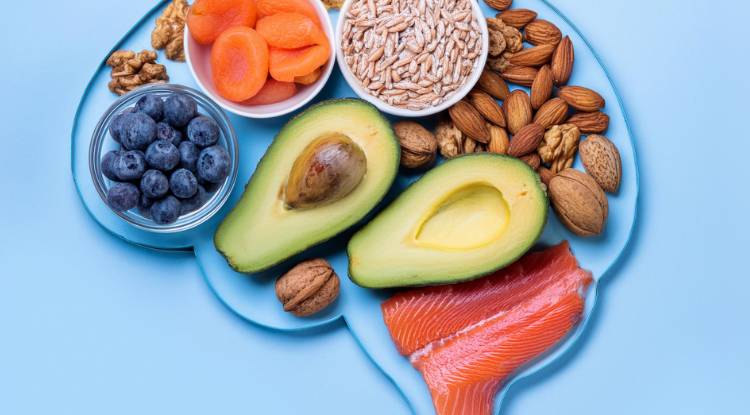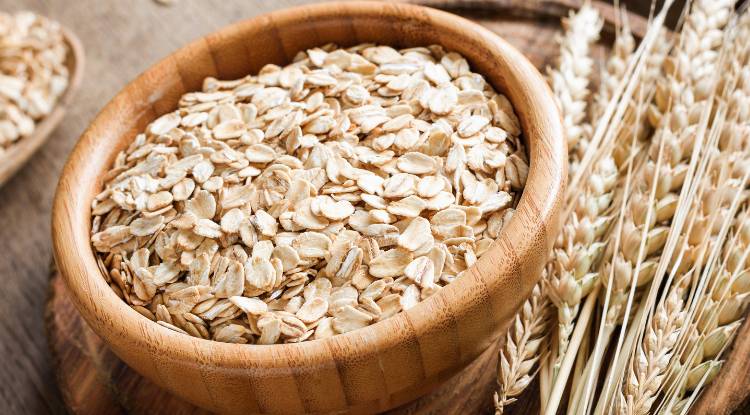Creatine: Not Just for Bodybuilders; A Smart Supplement for Energy, Brain and Muscle Health

When you hear the word “creatine,” you might picture bulky gym-goers and intense weightlifting sessions. But there’s much more to this natural compound than muscle size or strength.
Creatine isn’t just for athletes, it’s an energy-boosting, brain-supporting supplement with a wide range of benefits.
Whether you’re looking to improve your workouts, support brain health, maintain muscle as you age, or simply feel more energised day to day, creatine could be a smart and safe addition to your supplement routine.
What Is Creatine?
Creatine is a substance found naturally in the body, mostly in your muscles, but also in your brain and other tissues. It’s made from three amino acids (arginine, glycine, and methionine) and plays a crucial role in the production of ATP (adenosine triphosphate), the energy your body uses for short, explosive bursts of movement or mental effort.
While your body produces creatine on its own, and you get small amounts from foods like red meat and fish, supplementation allows your muscles and brain to store more, which can be a game changer for physical and cognitive performance.
Why Creatine Is More Than Just a Gym Supplement
For decades, creatine has been studied as a performance enhancer, and for good reason. But beyond the gym, its impact on cellular energy, brain health, and healthy aging is just as compelling.
Here’s how creatine supports your body and mind across different life stages:
Physical Performance and Recovery
Creatine is most well-known for helping the body produce quick energy during high-intensity exercise. It can help:
-
Increase strength and power output
-
Improve muscle endurance
-
Enhance recovery between sets or sprints
-
Support lean muscle gain when combined with resistance training
It’s especially helpful during short, intense efforts like weightlifting, sprinting or HIIT workouts. If you train regularly, creatine may help you push harder and recover better, allowing for more progress over time.
But even if you’re not an athlete, creatine can still support your physical performance by helping muscles work more efficiently and reducing fatigue during everyday activity.
Muscle Maintenance as You Age
From your 30s onwards, it’s common to start losing muscle mass and strength, a process called sarcopenia. This can affect balance, energy, mobility, and overall independence later in life.
Creatine can help counteract this decline by supporting muscle strength and function, particularly when paired with regular resistance or bodyweight training.
This makes it a useful supplement not just for gym-goers, but for anyone over 40 looking to stay strong, stable and confident in their body.
Brain Function and Mental Clarity
Creatine isn’t just stored in your muscles. It’s also found in the brain, where it helps fuel mental tasks that require short bursts of energy. Early research shows promising benefits for:
-
Cognitive performance under fatigue or stress
-
Memory and processing speed, particularly in older adults
-
Mood support, especially in people with low energy or depression
Some researchers believe creatine could support brain ageing, protect against neurological decline and even improve mental clarity in sleep-deprived or vegan individuals (who tend to have lower creatine stores due to diet).
If you’ve ever felt mentally foggy or sluggish, or you want to stay sharp as you age, creatine may be a gentle but powerful ally.
Energy and Fatigue Support
Creatine helps your body recycle and produce energy more efficiently, particularly during repeated bursts of activity. That means it may also help you feel less drained during exercise, and more resilient during day-to-day life.
If you often feel tired during workouts or notice your energy dips quickly during physical tasks, creatine could support your stamina and help you bounce back faster.
It’s not a stimulant, so you won’t feel a “buzz,” but many people notice more consistent energy levels once their creatine stores are fully topped up.
Vegetarian and Vegan Support
Since creatine is mostly found in animal products, vegetarians and vegans tend to have lower baseline levels in their muscles and brains. This can result in reduced physical performance, slower recovery, and lower energy during intense tasks.
Supplementing with creatine is a great way to bridge the gap, and may offer noticeable benefits in energy, strength and mental performance for plant-based individuals.
Simply Supplements offers vegan-friendly creatine monohydrate powders and capsules to suit a variety of diets.
How to Take Creatine
The most widely used and researched form of creatine is creatine monohydrate, and for most people, it’s the best option in terms of cost, effectiveness and safety.
Here’s how to use it:
-
Daily dose: 3 to 5 grams per day is effective for most adults
-
Loading phase (optional): Some people choose to take 20 grams per day, split into four doses, for 5 to 7 days to saturate their muscles quickly, followed by a maintenance dose of 3 to 5 grams per day. However, this step is optional.
-
When to take: Creatine can be taken any time of day, either with a meal, post-workout, or whenever it fits into your routine
It dissolves easily in water or juice and is tasteless when mixed with sm oothies or shakes.
How Long Does It Take to Work?
Most people begin to notice improvements in energy, performance and recovery within 1 to 2 weeks, especially if they’ve followed a loading phase. Without loading, it may take 3 to 4 weeks of daily use to feel the full benefits.
Remember, consistency is key. Skipping days will slow the saturation of your muscle stores and delay results.
Is Creatine Safe?
Yes, creatine is a well studied supplement, with decades of safety data to back it up. It’s suitable for long-term use and generally well tolerated.
Some people report mild bloating or water retention during the loading phase, but this usually subsides once a steady maintenance dose is established. Drinking plenty of water can help.
If you have a history of kidney issues, consult your GP before starting creatine, especially if you take other medications. For most healthy adults, creatine is safe and beneficial when used as directed.
Common Myths About Creatine
“It’s only for bodybuilders.”
False. Creatine supports energy and muscle maintenance for people of all activity levels, not just gym-goers.
“It causes weight gain.”
Creatine may cause a small increase in water content within muscles, which can show as 1 to 2kg on the scale. This is not fat gain and is actually a sign your muscles are well hydrated and storing energy effectively.
“It’s bad for your kidneys.”
Research shows that creatine, when taken at recommended doses, hasn’t been found to damage the kidneys in people without kidney disease. It’s still important to stay well hydrated and follow guidance. Sometimes creatine can make a kidney marker called eGFR look lower than it really is, but this doesn’t mean the kidneys are actually harmed.
Who Should Consider Taking Creatine?
Creatine may be worth adding to your routine if you:
-
Work out regularly and want to boost performance or recovery
-
Are over 40 and looking to maintain muscle mass and function
-
Follow a vegan or vegetarian diet
-
Experience mental fatigue, brain fog or low mood
-
Want to support energy metabolism and healthy ageing
-
Are managing recovery from illness, injury or periods of physical decline
As always, speak to a healthcare professional before starting a new supplement if you have any concerns or medical conditions.
Final Thoughts
Creatine isn’t just a supplement for athletes, it’s a smart, research-backed way to support your whole body’s energy system. From your muscles to your mind, it helps you perform, recover and function more efficiently.
Whether you’re in your 20s and hitting the gym, in your 40s and looking to stay strong, or in your 60s and wanting to protect your brain and mobility, creatine is one of the few supplements with benefits that span across ages and life stages.
It’s safe, affordable and simple to use, and it might just be the support your body’s been asking for.
Explore Simply Supplements’ new, high-quality Creatine Monohydrate 3,000mg.
Sources:

 Funmi Akinola (Msc, Anutr)
Funmi Akinola (Msc, Anutr) 

































































